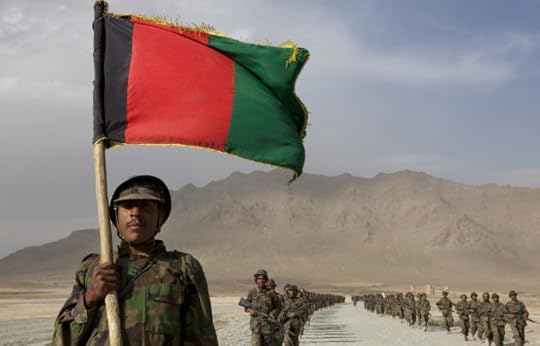The six stages of adjusting to working with Iraqi and Afghan security forces

The other day while riding on the Washington, D.C., Metro I
jotted down this summary of a typical American commander's mode of dealing with
his Iraqi or Afghan counterparts in local security forces:
1. Upon arrival: "Ok, Ahmed, Mohammed, whatever you name is,
there's a new sheriff in town -- and
you're looking at him."
2. Weeks later: "Colonel Localguy, Major Otherguy, please
sit down. Here is a Powerpoint briefing on what you're gonna do."
3. Weeks more later: "Ok, I got it. I can be sensitive! So,
colonel, this is what we are gonna
do."
4. Many weeks more: "Now that I am beginning to understand
this place, this is what I think we should do."
5. Months into the tour: "I'm at my wits' end. What do you think we should do?"
6. Near end of tour: "Before we leave, is there anything I
can do to help you achieve your goals?"
Repeat with each
rotation until the American people tire of the war.
Or,
as Maj. Norman Stephenson put it in a recent Leavenworth
interview, "The biggest lesson that our military needs to take away from
this experience was that until we were ready to trust, train, and recognize the
Iraqi military and police force for what they were, we didn't help the country.
Upon that, we recognized what the people needed was an Iraqi Army, an Iraqi
government, and an Iraqi police force to protect and work for them, not an
American Army to protect them and work for them."
I read my list of six stages to a colonel I know who
commanded a battalion in Afghanistan. "Yep," he nodded. "Why can't we start
with number 6?" Rotation of commanders, he noted, is no way to conduct a
counterinsurgency campaign. More about that in my
book later this year.
Thomas E. Ricks's Blog
- Thomas E. Ricks's profile
- 436 followers



